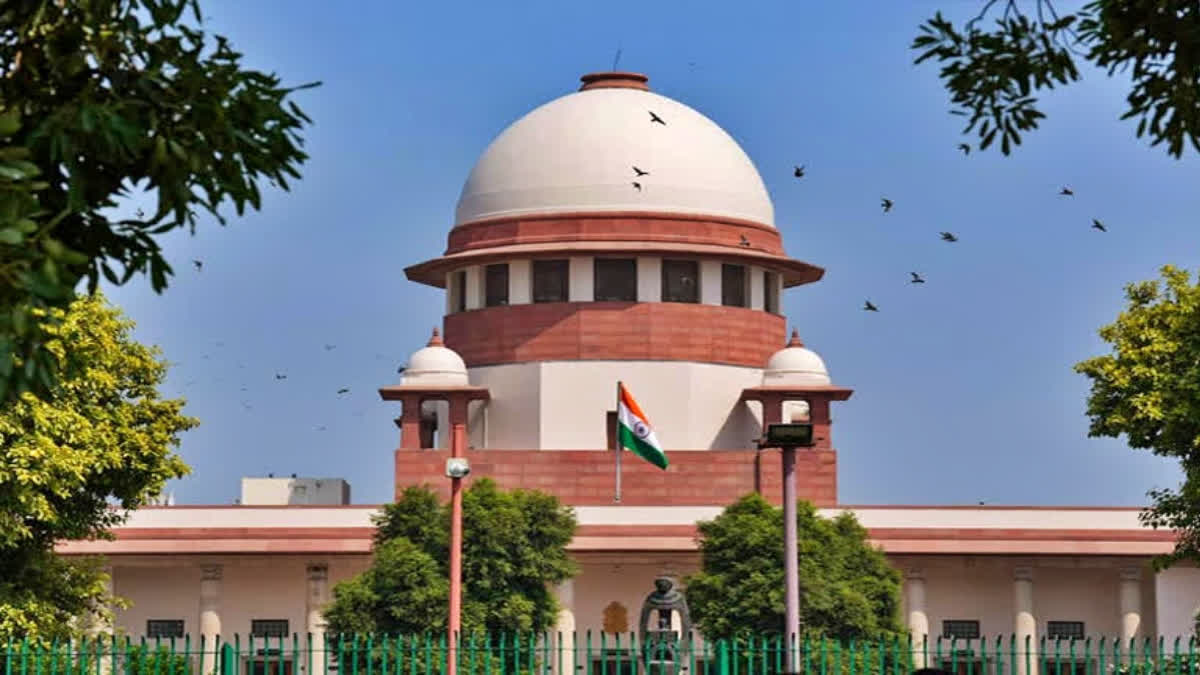New Delhi: The Supreme Court has said that a dying declaration while carrying a presumption of being true must be wholly reliable and inspire confidence, and when there is any suspicion over the veracity of it, then it will only be considered as a piece of evidence but cannot become the basis for conviction alone.
The top court made this observation while setting free a death row convict by acquitting him of the charge of setting on fire his son and two brothers. The deceased were allegedly against his second marriage in 2014. A bench of Justices B R Gavai, J B Pardiwala and Prashant Kumar Mishra said the dying declarations of two victims were not in sync with the testimonies of key witnesses.
The apex court allowed petitioner Irfan’s appeal and referred to the legal position and judgments, both Indian and foreign, on the trustworthiness of dying declarations in a scenario where the case is based on circumstantial evidence. The top court noted that in India too, a similar pattern is followed, where the courts are first required to satisfy themselves that the dying declaration in question is reliable and truthful before placing any reliance upon it.
“Thus, dying declaration while carrying a presumption of being true must be wholly reliable and inspire confidence. Where there is any suspicion over the veracity of the same or the evidence on record shows that the dying declaration is not true it will only be considered as a piece of evidence but cannot be the basis for conviction alone," said the bench.
The bench noted that there is no hard and fast rule for determining when a dying declaration should be accepted; the duty of the court is to decide this question in the facts and surrounding circumstances of the case and be fully convinced of the truthfulness of the same. “Since time immemorial, despite a general consensus of presuming that the dying declaration is true, they have not been stricto-sensu accepted, rather the general course of action has been that the judge decides whether the essentials of a dying declaration are met and if it can be admissible, once done, it is upon the duty of the court to see the extent to which the dying declaration is entitled to credit," said the bench.
The apex court directed for immediate release of Irfan, incarcerated for the last eight years, after setting aside his conviction and the capital punishment for his alleged role in the death of his son, Islamuddin and two brothers -- Irshad and Naushad. According to the prosecution the incident occurred on the intervening night of August 5-6, 2014 at their home in Bijnore. Irshad and Islamuddin had named Irfan as the person who set them on fire.
The apex court said that it is difficult to rest the conviction solely based on the two dying declarations of his brothers, as the Allahabad High Court disbelieved the testimony of a key prosecution witness.
“The juristic theory regarding the acceptability of a dying declaration is that such declaration is made in extremity, when the party is at the point of death and when every hope of this world is gone, when every motive to falsehood is silenced, and the man is induced by the most powerful consideration to speak only the truth. Notwithstanding the same, great caution must be exercised in considering the weight to be given to this species of evidence on account of the existence of many circumstances which may affect their truth”, said the top court.
Also read: Tamil Nadu cannot force us to release water, Karnataka tells SC on Cauvery water dispute



